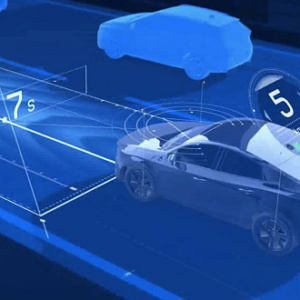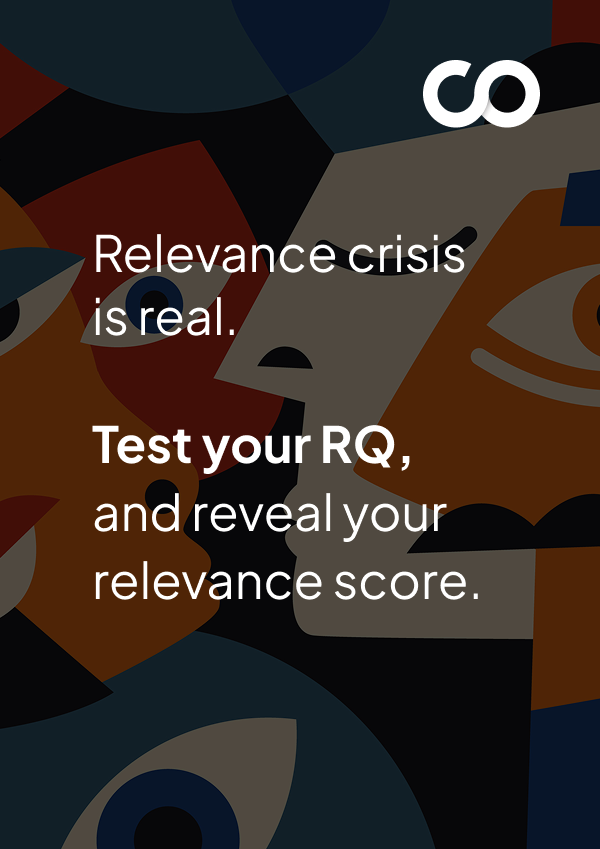EHR Integration Services
Custom EHR/EMR Integration Services for Connected Healthcare

From Disconnected Systems to Unified Patient Journeys
Fragmented healthcare systems slow down care delivery, increase administrative complexity, and dilute patient experience. When EHRs, lab systems, billing platforms, and patient portals function in isolation, critical health data becomes scattered. This delays diagnoses, duplicates work, and increases compliance risks, leading to frustrated clinicians and disengaged patients.
Codewave’s EHR integration services transform fragmented healthcare workflows into a unified, intelligent data network. We design secure interoperability frameworks that connect EMR modules, LIS (Lab Information Systems), PACS (Imaging Systems), and CRM platforms through FHIR-based APIs and real-time data pipelines.
Each integration ensures HIPAA, HL7, and FHIR compliance, providing a single, reliable source of truth for every patient interaction. By connecting disparate systems, we help healthcare providers gain immediate access to longitudinal patient data. This, in turn, enables faster decisions, higher treatment accuracy, and a consistent care experience across every channel.

Here’s how you benefit:
3x
Faster Access to Patient Records
40%
Reduction in Administrative Time per Case
50%
Higher Patient Engagement Through Connected Platforms
Download The Master Guide For Building Delightful, Sticky Apps In 2025.
Build your app like a PRO. Nail everything from that first lightbulb moment to the first million.
Unified Healthcare Data, Without the Data Silos
Your data should work together, not against you. We build interoperable EHR systems that unify patient records, automate workflows, and connect healthcare operations.
In virtual consultations, doctors often struggle with incomplete patient data. Switching between systems to find past reports, imaging data, or prescriptions slows diagnosis and affects care quality.
We solve this by creating FHIR-based EHR integration APIs that connect telehealth platforms directly with patient data repositories. This gives physicians a complete, up-to-date view of a patient’s health during live consultations, without switching screens.
Our integrations use secure, low-latency data pipelines and event-driven synchronization to capture information instantly, even in fluctuating network conditions. Every exchange is encrypted and logged to maintain compliance while ensuring data reliability. The outcome? Faster consultations, fewer errors, and a better patient experience across every virtual touchpoint.
Example: Imagine a neurologist conducting a teleconsultation has to switch apps to review a patient’s MRI. With the integrated telehealth-EHR setup, imaging data will appear in the consultation interface in real time, reducing case-handling time and improving diagnostic accuracy.
Hospitals often juggle multiple systems for scheduling, billing, and insurance, each operating in isolation. These gaps create duplicate data, inconsistent records, and costly delays across departments.
Codewave resolves this through EHR integration frameworks that securely connect Practice Management Systems (PMS), Hospital Information Systems (HIS), and EHR platforms.
We use SOAP-based service endpoints to enable smooth communication between legacy hospital systems. Through XML schema reconciliation and transaction-aware message brokers, we standardize data formats and synchronize updates to appointment records, discharge notes, and claims in real time.
This unified setup keeps every department (front office, clinical, and finance) working with the same accurate data. It eliminates redundancy, improves traceability, and ensures that each patient action is automatically updated across the organization.
Example: A hospital’s billing department may frequently encounter mismatches in patient IDs across databases. With unified HIS–EHR integration, every patient action from admission to discharge will be updated instantly across modules, reducing billing discrepancies.
Delayed lab results and imaging uploads often slow down diagnosis and increase clinical risk. When reports are manually transferred or inconsistently formatted, clinicians spend more time reconciling data than treating patients.
We solve this by integrating Laboratory Information Systems (LIS), Picture Archiving and Communication Systems (PACS), and your EHR in real time. Using DICOMweb APIs for imaging exchange and HL7 message adapters for lab data, we build automated pipelines that validate, tag, and organize diagnostic results the moment they’re generated.
Each new report is indexed under the correct patient record, formatted into standardized EHR fields, and ready for review instantly. Moreover, to maintain speed at scale, we use edge-based caching. It ensures large imaging files load quickly without straining the network.
The result is faster reporting, fewer administrative steps, and more accurate, timely clinical decisions.
Example: Suppose radiologists upload scans to patient records hours after testing manually. With the automated EHR–PACS connection, image data will be transferred instantly, allowing physicians to view results within minutes, cutting report turnaround times.
Patients expect instant access to their health information, not delayed reports or incomplete histories. Outdated portals often leave them waiting for updates, increasing support calls and reducing trust in digital care.
We enhance patient experience through EHR integrations that connect clinical databases with mobile apps and web portals. We use trusted JSON-based data contracts to standardize information exchange and protocols like OAuth 2.0 with rotating session tokens to maintain secure, uninterrupted access. Patients can view prescriptions, lab results, and appointment schedules in real time, all from one place.
To keep experiences smooth, we add push notifications for critical updates and offline data caching so key information remains accessible even without internet connectivity. The result is better engagement, reduced support workload, and a consistent patient experience across channels.
Example: Suppose patients frequently call clinics to request lab results that should already be available online. With the integrated EHR–patient portal, test outcomes and physician notes will sync instantly to the patient’s dashboard, improving transparency and boosting portal engagement.
Critical patient data from connected devices often remains trapped in silos. Without real-time integration, doctors miss early warning signs, and care teams react too late to prevent complications.
We build device connectivity frameworks that bridge IoT-enabled equipment and wearables directly with EHR systems. We use MQTT brokers, lightweight systems that send real-time data from medical devices, and protocol translators that convert that data into a standard format. The data is then structured according to FHIR Observation standards, making it instantly usable by clinicians.
A real-time alerting engine analyzes incoming vitals and triggers notifications when thresholds are breached, enabling faster intervention. The edge layer filters noise and prioritizes data transmission by severity, reducing unnecessary bandwidth consumption.
This architecture ensures constant monitoring even in bandwidth-constrained hospital environments.
Example: Imagine a patient’s oxygen saturation drops overnight, but the reading isn’t visible to clinicians until the next morning. With continuous device-to-EHR integration, the data will trigger real-time alerts to the care dashboard, allowing faster intervention and preventing potential emergencies.
Healthcare providers often face barriers when exchanging patient data across networks due to incompatible formats and identifiers.
Our EHR–HIE integration solutions enable smooth, secure data exchange between healthcare organizations. We use document registry services and FHIR-based bulk data exports to share complete patient histories across different platforms.
A Master Patient Index (MPI) links records from different hospitals to the right patient, eliminating duplicate or mismatched files. All shared information is protected with advanced encryption (AES-256) and secure data transfer protocols (TLS 1.3) to keep patient data safe at every step.
The result is a trusted, standardized data backbone that helps healthcare networks collaborate effectively, improve population health insights, and reduce time spent on manual data handling.
Example: When a patient is transferred between hospitals, their data needs to be manually exported and re-entered. With HIE integration in place, the receiving facility will retrieve complete, structured health records in seconds, thus reducing repeat diagnostics and improving care coordination.
Legacy EHR infrastructures struggle to keep up with the scale and agility modern healthcare demands.
We modernize healthcare data systems with cloud-based EHR integrations that bring scalability, speed, and intelligence to every workflow. We deploy containerized microservices that connect EHR systems with secure data lakes and analytics engines. This approach allows both structured and unstructured data to flow into one unified pipeline.
Further, this setup powers real-time dashboards and predictive analytics, helping healthcare leaders identify readmission risks, manage workloads, and optimize care delivery. Every solution includes governance controls and audit logs to ensure data privacy and regulatory compliance.
This architecture transforms static health data into actionable intelligence for forecasting, planning, and personalized care.
Example: Hospital administrators may struggle to analyze trends in patient recovery rates across departments. After cloud-based EHR integration, the analytics layer will generate real-time performance dashboards, identify bottlenecks, and improve overall operational efficiency.
Our Foolproof Integration Framework for Scalable, Secure Healthcare Systems
From initial discovery to post-deployment optimization, our EHR/EMR integration process blends design thinking, clinical insight, and modern architecture to build unified healthcare systems.
We begin by understanding your healthcare ecosystem: clinical workflows, patient journey touchpoints, and existing software stack. Through stakeholder workshops, we identify pain points such as duplicate data entry, lagging lab integrations, or inconsistent billing synchronization.
We review your EHR setup, connected systems, and compliance requirements to define clear integration goals. These include simplifying provider collaboration, improving telehealth efficiency, or unifying data across multiple facilities.
By the end of this phase, you have a clear integration roadmap with measurable objectives aligned to business and care outcomes.
Once goals are clear, our architects design a scalable interoperability framework tailored to your infrastructure. We determine whether a service-based architecture (for modular scalability) or a central integration hub (for single-source data control) is most efficient.
We define API contracts, event triggers, and data flow diagrams that govern how your EHR will connect to systems such as LIS, HIS, and billing platforms. This stage results in a complete architectural blueprint detailing security models, data governance, and validation protocols, ready for execution.
Integration doesn’t stop at the backend; user experience matters too. We align interfaces for clinicians, administrators, and patients so data flows feel natural rather than disruptive.
Our team creates data-mapping matrices to ensure that each field, from patient identifiers to lab codes, synchronizes accurately across systems.
Once architecture and data models are approved, our development team builds the integration modules. We create secure, API-first connections between your EHR and supporting systems, such as LIS, HIS, and billing platforms. Real-time updates are handled via event-driven services, ensuring that every change, from new test results to insurance claims, propagates across systems instantly.
Throughout development, we maintain version control, documentation, and continuous integration pipelines, allowing incremental validation and faster delivery. By the end of this stage, you have a fully functional integration build, ready for end-to-end testing.
We perform complete testing across every integration point. This includes interoperability validation (HL7/FHIR), load testing under peak usage, and security checks for HIPAA and GDPR compliance.
We also test for user-level accuracy, ensuring every clinician, billing staff, and patient sees only the correct information, at the right time. Finally, we run alignment sessions with healthcare staff to test usability and minimize change resistance before rollout.
Only after these validations pass do we move to production deployment.
We deploy the integration using zero-downtime rollout strategies such as blue-green or phased releases, ensuring live operations continue uninterrupted. Our monitoring setup tracks data exchanges, API latency, and synchronization accuracy in real time, allowing us to detect and resolve issues instantly.
During go-live, we coordinate closely with your internal teams to validate performance and ensure clinical continuity. The result is a stable, connected system where every department experiences unified data flow from day one.
Post-launch, our team enters a hypercare window to monitor system stability, performance metrics, and user feedback. We analyze data flow bottlenecks, refine sync intervals, and resolve any edge cases emerging from real-world usage.
Once stabilized, we shift to long-term optimization, adding new integrations, enhancing interoperability, and upgrading analytics capabilities. This ensures your EHR ecosystem continues to scale as your organization grows and healthcare standards change.
When healthcare systems connect, care becomes faster, wiser, and more human.
Begin Your EHR Integration Strategy Today
The Backbone of Secure, Interoperable EHR Integrations
Category | Tools and Technologies |
Interoperability Standards | HL7 v2/v3, FHIR, DICOM, CDA, IHE XDS.b |
Integration Frameworks | Mirth Connect, Apache Camel, MuleSoft, Spring Integration |
API Management & Gateway | Kong, Apigee, AWS API Gateway |
Data Mapping & Transformation | Altova MapForce, Talend Data Mapper, JSON Schema Validator |
Messaging & Event Streaming | Apache Kafka, RabbitMQ, AWS EventBridge |
Security & Compliance | OAuth 2.0, OpenID Connect, TLS 1.3, HIPAA, GDPR, HITECH Compliance Frameworks |
Testing & Validation | Postman, ReadyAPI, SoapUI, HL7 Validator, JMeter |
Monitoring & Logging | ELK Stack (Elasticsearch, Logstash, Kibana), Datadog, AWS CloudWatch |
Deployment & Automation | Docker, Kubernetes, Jenkins, Terraform |
Documentation & Governance | Confluence, Swagger, SmartDocs, AuditBoard |
Connected Care, Proven Results
Healthcare organizations we’ve partnered with are seeing measurable transformation. From hospitals unifying records across departments to telehealth platforms enabling real-time care continuity, our solutions have turned fragmented systems into connected, high-performance ecosystems.
See how we’re helping build connected healthcare. Explore our portfolio!
We transform companies!
Codewave is an award-winning company that transforms businesses by generating ideas, building products, and accelerating growth.
A network of excellence. Our partners.
Frequently asked questions
The cost of EHR integration with Codewave typically ranges between $20,000 and $50,000, depending on data volume, legacy system complexity, and compliance requirements. Each project is scoped through a design-thinking workshop to ensure scalability, security, and measurable ROI.
Common challenges in EHR/EMR integration include data interoperability issues, inconsistent data quality, security and privacy risks, and workflow misalignment across systems. We address these through standards-based frameworks (FHIR, HL7), strict encryption, and design-thinking–driven process mapping.
We deploy data transformation engines that normalize formats between XML, JSON, and HL7 messages. This allows disparate systems to communicate without rewriting existing infrastructure.
Absolutely. We design centralized integration hubs with region-specific compliance rules, ensuring synchronized data access across hospitals, clinics, and partner networks.
We minimize vendor lock-in by architecting integrations around open standards (FHIR, HL7, RESTful APIs) and modular, service-based components rather than proprietary SDKs. This allows hospitals and health-tech teams to swap vendors, upgrade tools, or extend functionalities without disrupting existing workflows or re-engineering the entire system.
Most in demand
Latest thinking
Connected systems. Smarter decisions. Stronger patient outcomes.
Schedule Your EHR Integration Consultation































































